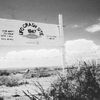X



Comments to #11
All comments (3)
1



1.

Jelyyfish 4 year s ago
Where the eff do you kids come up with your history 'facts'? I'm 60; I tend to keep company with people who are relatively well-read, articulate, and highly verbally expressive. Never in my entire life have I heard anyone use the expression 'Adam's Ale'. Ever. I see it in crossword puzzles; that's it. ...Also: 'paint the town red' was used commonly by my parents' generation and beyond, meaning just what it means now: to go out and have a good time. ...You kids and your facts.
0



2.

Fishermen 4 year s ago
@Jelyyfish - In the early hours of Thursday, 6 April 1837, Henry Beresford, 3rd Marquess of Waterford and his fox-hunting friends arrived in Melton Mowbray at the Thorpe End tollgate. They had been drinking heavily at Croxton races, and understandably the tollkeeper asked to be paid before he opened the gate for them. Sadly for him some repairs were underway, and ladders, brushes and pots of red paint were lying nearby; the Marquess and his cronies seized these and attacked the tollkeeper, painting him and a constable who intervened red. They then nailed up the door of the tollhouse and painted that red before moving into the town carrying the stolen equipment. They rampaged down the Beast Market (now Sherrard Street), through the Market Place, and into Burton Street, painting doors as they passed, pulling on door knockers and knocking over flower pots. At the Red Lion (now part of the Harborough Hotel), they pulled down the sign and threw it into the canal. At the Old Swan Inn in the Market Place, next to what is now the Grapes, the Marquess was hoisted onto the shoulder of another man to paint the carved swan inn sign there red. (In 1988, when the old Swan Porch fell down, traces of red paint were found on the back of the carved swan when it was removed for restoration). They also vandalised the Post Office and the Leicestershire banking company before trying to overturn a caravan in which a man was fast asleep. Solitary policemen tried to intervene at intervals and were beaten up and painted red for their trouble. Eventually more police arrived in numbers and seized one of the men, Edward Raynard, who was put in the Bridewell prison. The others promptly returned and rescued him, breaking three locks and beating two constables, threatening them with murder if they did not produce the key. The following day there was uproar; when the Marquess of Waterford finally sobered up, he paid for all the damage to people and property, but the group were still brought to trial before the Derby Assize Court in July 1838. They were found not guilty of riot, but were fined £100 each for common assault, a considerable sum then. Following the incident, the phrase "paint the town red" entered the language
1



3.

Driving 4 year s ago
These are all Idioms not Clichés. Get it right
“Blowing a Raspberry”

Used primarily in English-speaking countries, this goes back to the late 19th century, and is a result of Cockney rhyming slang.
The word “Raspberry” is a shortened way of saying “Raspberry Tart,” which rhymes with “fart.” Therefore, a raspberry is a fart.
1.

Jelyyfish 4 year s ago
Where the eff do you kids come up with your history 'facts'? I'm 60; I tend to keep company with people who are relatively well-read, articulate, and highly verbally expressive. Never in my entire life have I heard anyone use the expression 'Adam's Ale'. Ever. I see it in crossword puzzles; that's it. ...Also: 'paint the town red' was used commonly by my parents' generation and beyond, meaning just what it means now: to go out and have a good time. ...You kids and your facts.
2.

Fishermen 4 year s ago
@Jelyyfish - In the early hours of Thursday, 6 April 1837, Henry Beresford, 3rd Marquess of Waterford and his fox-hunting friends arrived in Melton Mowbray at the Thorpe End tollgate. They had been drinking heavily at Croxton races, and understandably the tollkeeper asked to be paid before he opened the gate for them. Sadly for him some repairs were underway, and ladders, brushes and pots of red paint were lying nearby; the Marquess and his cronies seized these and attacked the tollkeeper, painting him and a constable who intervened red. They then nailed up the door of the tollhouse and painted that red before moving into the town carrying the stolen equipment. They rampaged down the Beast Market (now Sherrard Street), through the Market Place, and into Burton Street, painting doors as they passed, pulling on door knockers and knocking over flower pots. At the Red Lion (now part of the Harborough Hotel), they pulled down the sign and threw it into the canal. At the Old Swan Inn in the Market Place, next to what is now the Grapes, the Marquess was hoisted onto the shoulder of another man to paint the carved swan inn sign there red. (In 1988, when the old Swan Porch fell down, traces of red paint were found on the back of the carved swan when it was removed for restoration). They also vandalised the Post Office and the Leicestershire banking company before trying to overturn a caravan in which a man was fast asleep. Solitary policemen tried to intervene at intervals and were beaten up and painted red for their trouble. Eventually more police arrived in numbers and seized one of the men, Edward Raynard, who was put in the Bridewell prison. The others promptly returned and rescued him, breaking three locks and beating two constables, threatening them with murder if they did not produce the key. The following day there was uproar; when the Marquess of Waterford finally sobered up, he paid for all the damage to people and property, but the group were still brought to trial before the Derby Assize Court in July 1838. They were found not guilty of riot, but were fined £100 each for common assault, a considerable sum then. Following the incident, the phrase "paint the town red" entered the language